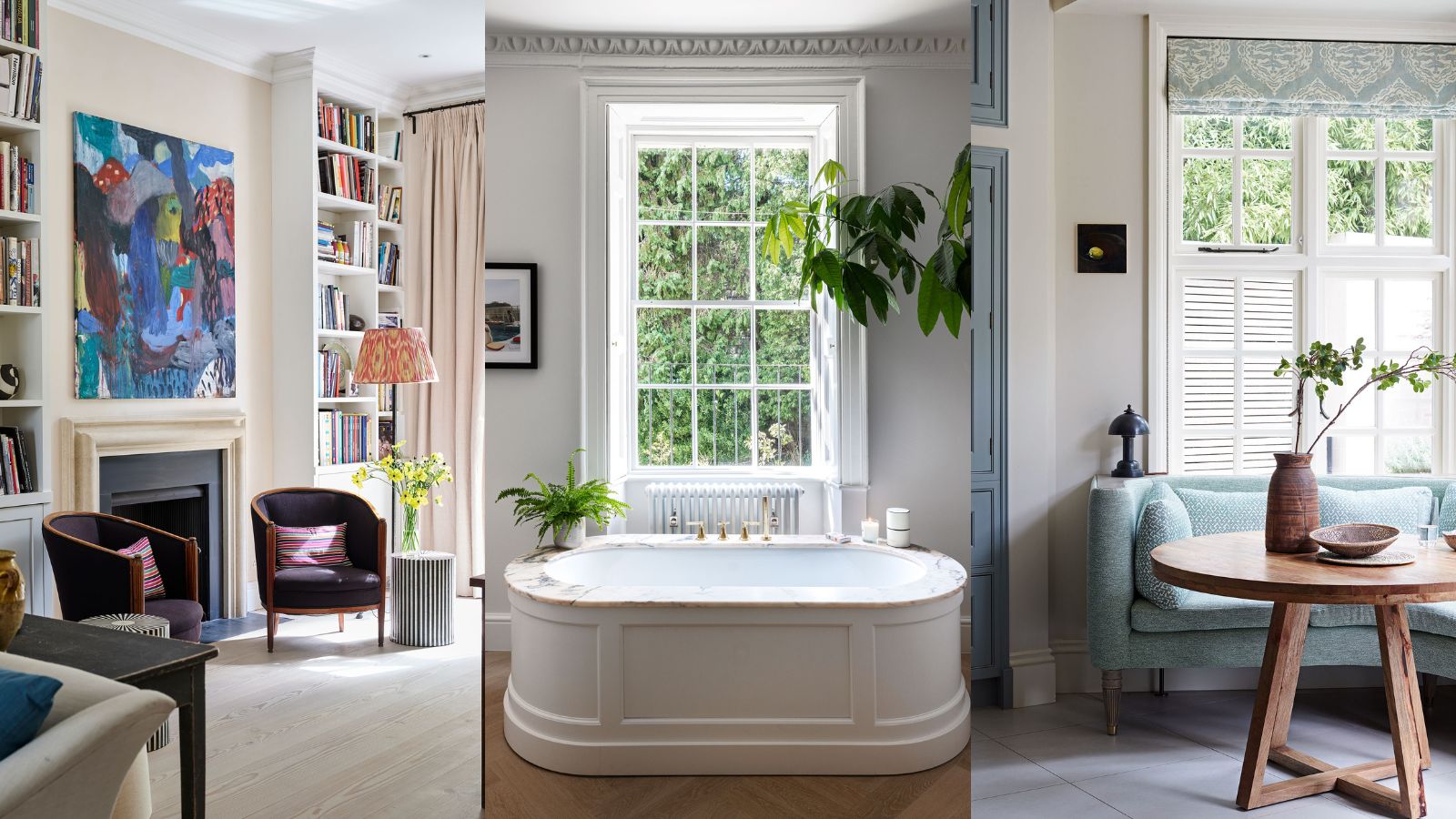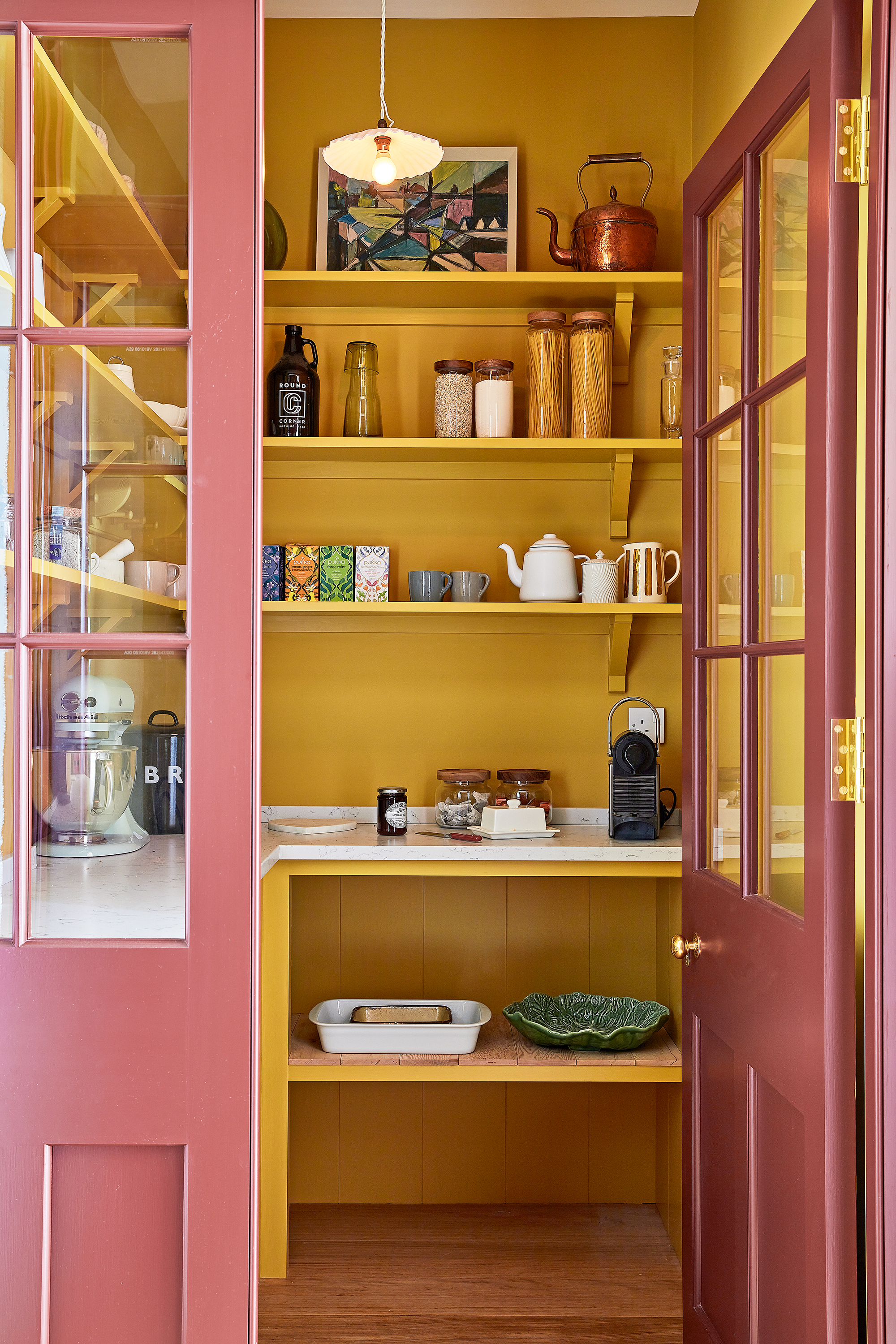Does a clean house make you happier? Here's our definitive answer
We spoke to the experts to answer the age old question: Does a clean house make you happier?


Design expertise in your inbox – from inspiring decorating ideas and beautiful celebrity homes to practical gardening advice and shopping round-ups.
You are now subscribed
Your newsletter sign-up was successful
Want to add more newsletters?

Twice a week
Homes&Gardens
The ultimate interior design resource from the world's leading experts - discover inspiring decorating ideas, color scheming know-how, garden inspiration and shopping expertise.

Once a week
In The Loop from Next In Design
Members of the Next in Design Circle will receive In the Loop, our weekly email filled with trade news, names to know and spotlight moments. Together we’re building a brighter design future.

Twice a week
Cucina
Whether you’re passionate about hosting exquisite dinners, experimenting with culinary trends, or perfecting your kitchen's design with timeless elegance and innovative functionality, this newsletter is here to inspire
If you've ever wondered if a clean house would make you happier, you are not alone. The idea that our home is powerfully symbolic and far more than just a shelter from the outside world – but a reflection of our true identity – was first proposed by Swiss theorist and psychiatrist Carl Jung. How we construct this space is, therefore, imperative to how to not only how we function, but also to our health and mental wellbeing.
Are people happier with a clean house?
'A clean house may not necessarily make you happier but it can contribute to feelings of happiness, accomplishment and calmness, says Abbas Kanani, Pharmacist and Health adviser for Chemist Click. 'Many studies have found that having a clean and tidy house can help you to feel relaxed, accomplished, stress free and this could in turn help with any mental health conditions and allow you to feel better and happier. Whereas if your house is messy or dirty this could trigger feelings of anxiety, low mood or agitation.'

Can a messy house affect mood?
Having an organized and clean house can improve your life in more ways than one. Brace yourself, because once you’ve read this, you’ll soon be craving the best cleaning tips. Having an clean house can make you feel happier – yes, really.
A study by psychologists Saxbe and Repetti found that people who describe their home as ‘cluttered’ and filled with ‘unfinished projects’ were more depressed, fatigued and stressed than those who describe their home as ‘restful’ and ‘restorative’.
If you’ve ever felt that sinking feeling of coming home after a long day to a house where there’s just 'stuff' everywhere, the link between clutter and unhappiness becomes evident. Banishing clutter can therefore make for a happier and calmer household; a simple solution with huge impact. An uncluttered space can make you physically healthier, too. A study by psychologists Vohs, Redden and Rahinel found that people working in a neat office were twice as likely to choose a healthy snack over a sugary treat than people working in a messy office. Sugary snacks act as a comfort in reaction to stressful surroundings. So tidy up your home, and sticking to your healthy eating plan could become a whole lot easier.
As if you need any more reasons to declutter, a clean house can even make you more sociable. If you've ever felt pangs of embarrassment about inviting friends and family over, then you'll be delighted to know that improved cleanliness could bridge the gap between isolation and socialization.
Friendships are important for your wellbeing, so create a space you’re proud of, where your friendships can flourish. When trying to engage in mindfulness, clutter is the enemy. The piles of paperwork and mountains of shoes scream out to distract you and make you feel guilty for not having already tidied them. Clearing the clutter means clearing away distractions, so an organized home enables you to focus on yourself, your senses and the present moment, more easily. In short, a clean house can make for a happier, healthier, more sociable and more mindful household.
Design expertise in your inbox – from inspiring decorating ideas and beautiful celebrity homes to practical gardening advice and shopping round-ups.

Is cleaning good for mental health?
As far back as the 19th century, textile designer and poet William Morris famously said: 'Have nothing in your houses that you do not know to be useful or believe to be beautiful.' Two centuries on, and we’re still trying to live up to this. Marie Kondo has become a household name with her lusted-after tidying method KonMari. Her practice focuses on what you should keep in your home, rather than what to discard, by considering which items you truly cherish. Everything in your home should have a purpose, either to be functional or to ‘spark joy’ and make you happy. Otherwise, what’s the point in having it? With this in mind, be selective when shopping for your home.
'We know that a clean and calm environment is good for your wellbeing, however, it’s important to note that most people are not taught to declutter and tidy up,' says Sue Spencer, a Platinum KonMari Master, founder of A Life More Organized.
'It can be overwhelming when things tip over and you suddenly feel the need for some organization around you – often people don’t know how or where to start which can lead to things building up. If you declutter and have a fresh start it’s also important to put some new routines and habits in place so you can maintain the space – luckily, there are professional organizers who can help you do this.'
Does mess affect men and women differently?
'Researchers at UCLA found that clutter and mess can lead to an increase in cortisol levels – the stress hormone,' says Sue Spencer. 'Clutter has a tendency to impact women more than men – as Researchers at the University’s Center on Everyday Lives and Families observed a link between high cortisol levels in female home owners and a high-density of household objects. The more stuff, the more stress women feel. Men, on the other hand, seem less bothered by mess.
Can a dirty house cause anxiety?
While you house might not be directly to blame for any anxiety you may be feeling, it could be hindering your ability to concentrate and calm your mind. Seeing piles of clutter and mess can, in fact, overstimulate the brain, making recovering from mental illness harder to overcome.
If the thought of decluttering and cleaning your home fills you with dread, know that you are not alone. Please call in a professional service to help you. Unsurprisingly, there has been a rise in the outsourcing of household chores.

So whether you thrive on doing it right or will do anything to get out of it, cleaning your house is an unavoidable part of everyday life. Thanks to huge advances in technology, laborious domestic chores can now be tackled in a matter of minutes, and while there still is no substitute for being thorough, if you choose your equipment wisely you’ll no longer need to spend hours getting the job done, and if studies suggest it may help you live a happier life, it is worth spending a little longer to ensure your home remains less chaotic.

Jennifer is the Digital Editor at Homes & Gardens, bringing years of interiors experience across the US and UK. She has worked with leading publications, blending expertise in PR, marketing, social media, commercial strategy, and e-commerce. Jennifer has covered every corner of the home – curating projects from top interior designers, sourcing celebrity properties, reviewing appliances, and delivering timely news. Now, she channels her digital skills into shaping the world’s leading interiors website.